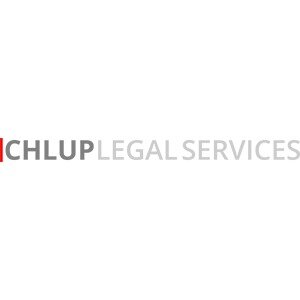Best Child Abuse Lawyers in St. Gallen
Share your needs with us, get contacted by law firms.
Free. Takes 2 min.
Free Guide to Hiring a Family Lawyer
List of the best lawyers in St. Gallen, Switzerland
About Child Abuse Law in St. Gallen, Switzerland
Child abuse refers to any form of physical, emotional, or sexual harm caused to a child. In St. Gallen, Switzerland, child abuse is taken very seriously, and the legal system is dedicated to protecting the rights and well-being of children. The law aims to prevent child abuse, investigate reported cases, and provide support to victims.
Why You May Need a Lawyer
Seeking legal advice in the field of child abuse may be necessary in various situations:
- If you suspect a child is being abused and want to report it to the authorities
- If you are involved in a child abuse case, either as the victim or the accused
- If you are a parent or guardian seeking custody or protection for a child who has experienced abuse
- If you need guidance on the legal rights and responsibilities related to child abuse
Local Laws Overview
The local laws in St. Gallen, Switzerland, outline several key aspects related to child abuse:
- Child abuse is a criminal offense, and individuals found guilty can face severe penalties.
- The law emphasizes the importance of reporting suspected child abuse promptly.
- Child protection services play a crucial role in investigating and intervening in cases of child abuse.
- The rights and well-being of the child are prioritized during legal proceedings.
- Support and counseling services are available for victims of child abuse.
Frequently Asked Questions
Q: How do I report suspected child abuse in St. Gallen?
A: If you suspect child abuse, immediately contact the Child and Adult Protection Authority (Kindes- und Erwachsenenschutzbehörde, KESB) in St. Gallen. They will guide you through the reporting process and take the necessary steps to protect the child.
Q: What should I expect if I report child abuse?
A: Reporting child abuse triggers an investigation by the relevant authorities. They will gather information, interview involved parties, and determine the appropriate course of action based on the evidence and the best interests of the child.
Q: What happens if someone is found guilty of child abuse?
A: If someone is found guilty of child abuse, they may face criminal charges, including imprisonment or fines. The court also has the authority to impose protective measures to ensure the safety and well-being of the child.
Q: Can I seek legal protection for a child who has experienced abuse?
A: Yes, as a parent or guardian, you can seek legal assistance to protect a child who has experienced abuse. This can involve obtaining a protection order, modifying custody arrangements, or seeking support from child protection services.
Q: Are there counseling services available for child abuse victims?
A: Yes, there are various counseling services available in St. Gallen specifically designed to support child abuse victims. These services provide emotional support, therapy, and assistance in dealing with the traumatic effects of abuse.
Additional Resources
For further assistance and information regarding child abuse in St. Gallen, Switzerland, the following resources can be helpful:
- Kindes- und Erwachsenenschutzbehörde (KESB) - The local authority responsible for child and adult protection.
- Kinderschutz Schweiz - A national organization dedicated to child protection in Switzerland.
- Pro Juventute - A Swiss foundation providing support to children and families, including assistance related to child abuse issues.
Next Steps
If you require legal assistance regarding child abuse in St. Gallen, Switzerland:
- Consider consulting a qualified lawyer specializing in child abuse cases.
- Gather any relevant information or evidence related to the case.
- Contact the Child and Adult Protection Authority (KESB) to report the abuse, if necessary.
- Seek emotional support and counseling for yourself and the child through local resources.
- Follow the guidance provided by legal professionals and cooperate with the authorities handling the case.
Lawzana helps you find the best lawyers and law firms in St. Gallen through a curated and pre-screened list of qualified legal professionals. Our platform offers rankings and detailed profiles of attorneys and law firms, allowing you to compare based on practice areas, including Child Abuse, experience, and client feedback.
Each profile includes a description of the firm's areas of practice, client reviews, team members and partners, year of establishment, spoken languages, office locations, contact information, social media presence, and any published articles or resources. Most firms on our platform speak English and are experienced in both local and international legal matters.
Get a quote from top-rated law firms in St. Gallen, Switzerland — quickly, securely, and without unnecessary hassle.
Disclaimer:
The information provided on this page is for general informational purposes only and does not constitute legal advice. While we strive to ensure the accuracy and relevance of the content, legal information may change over time, and interpretations of the law can vary. You should always consult with a qualified legal professional for advice specific to your situation.
We disclaim all liability for actions taken or not taken based on the content of this page. If you believe any information is incorrect or outdated, please contact us, and we will review and update it where appropriate.









